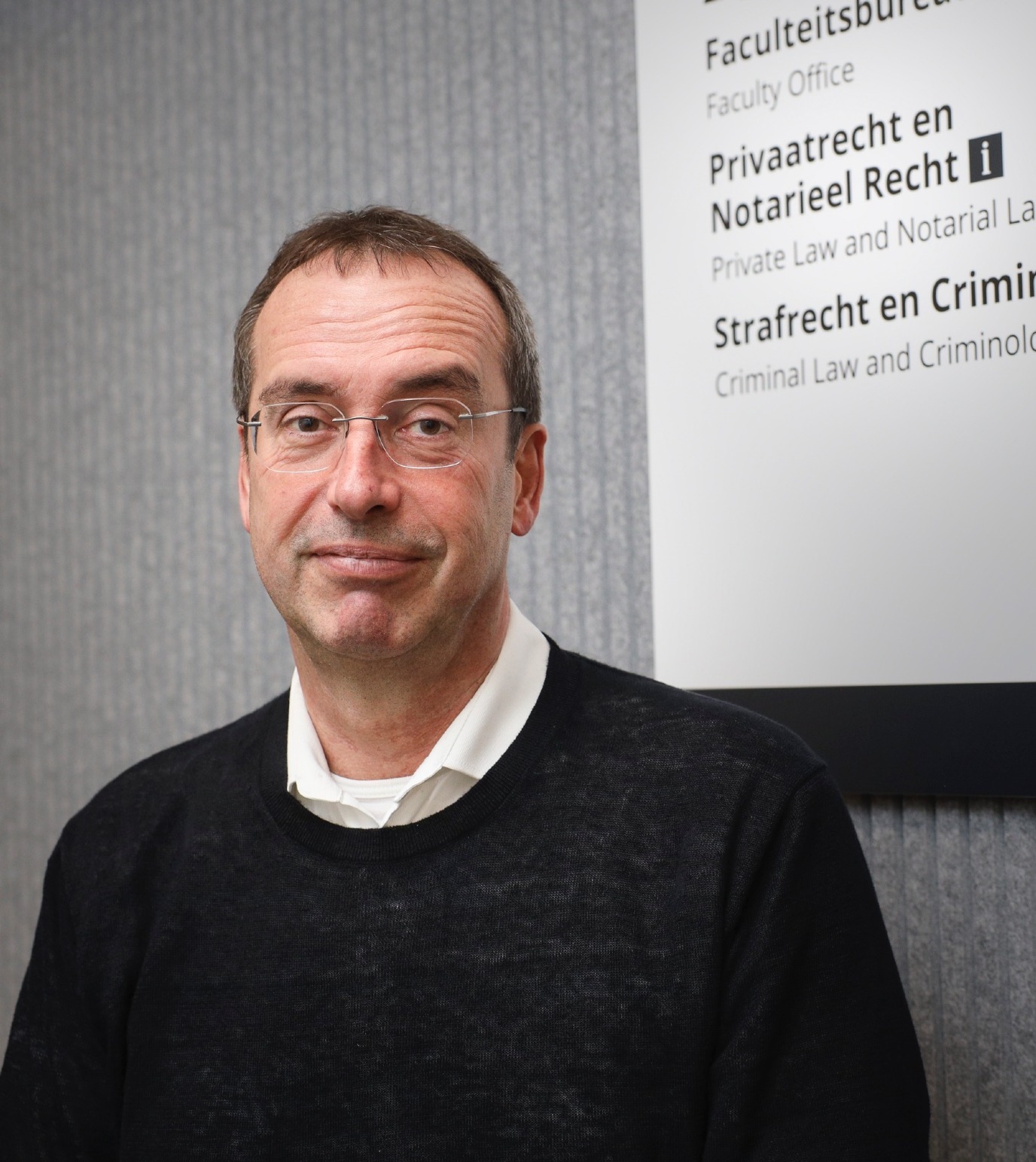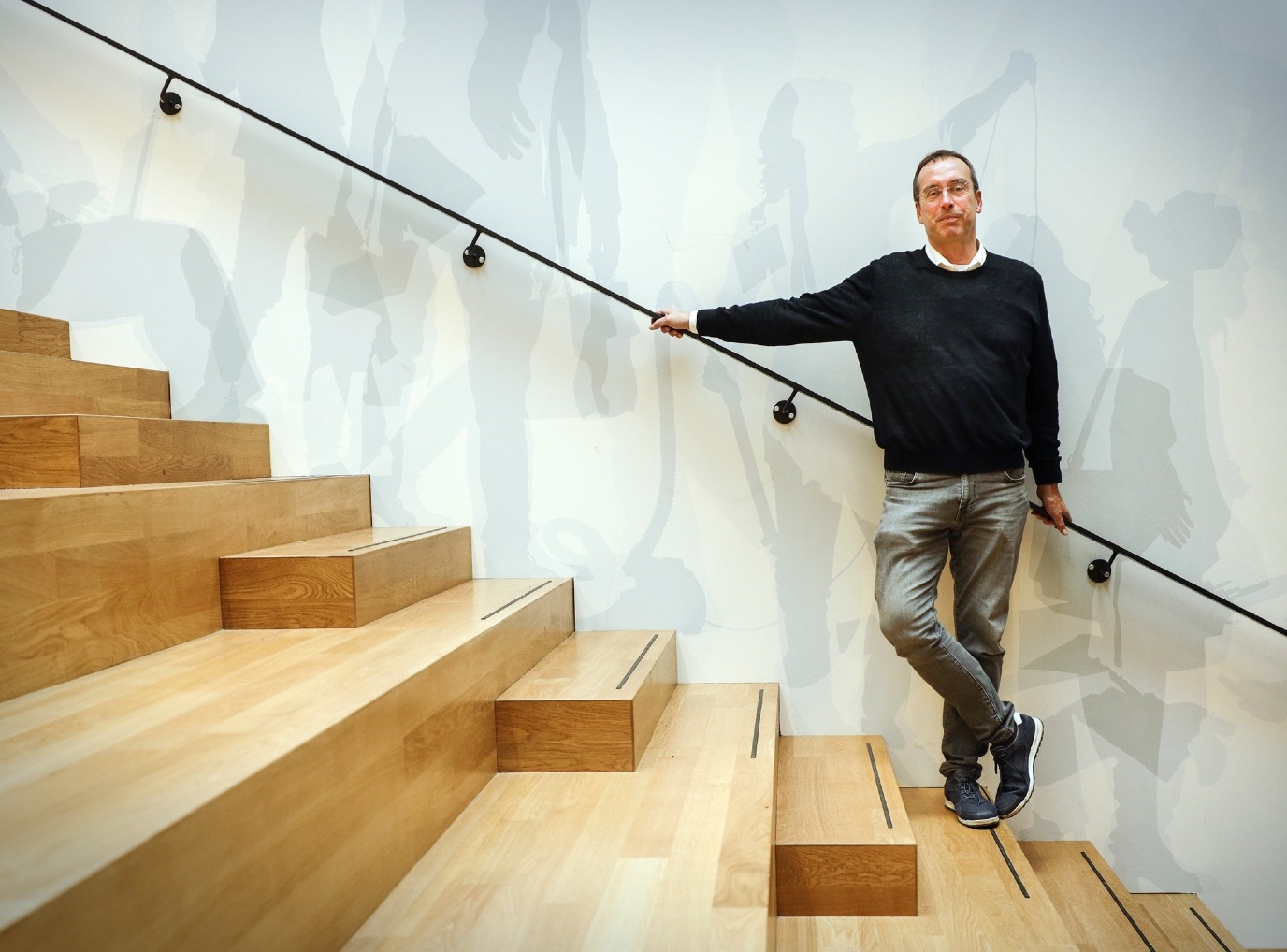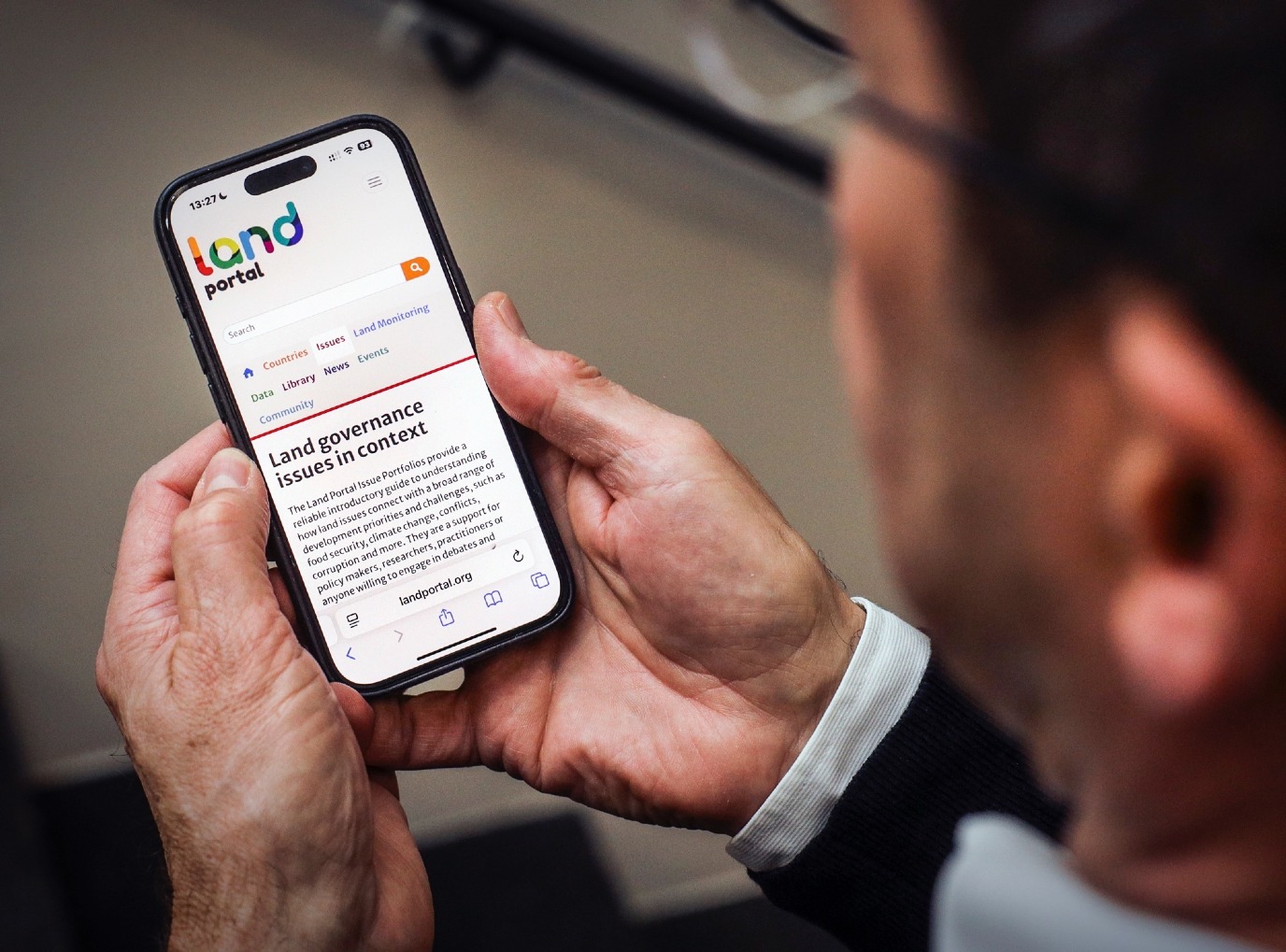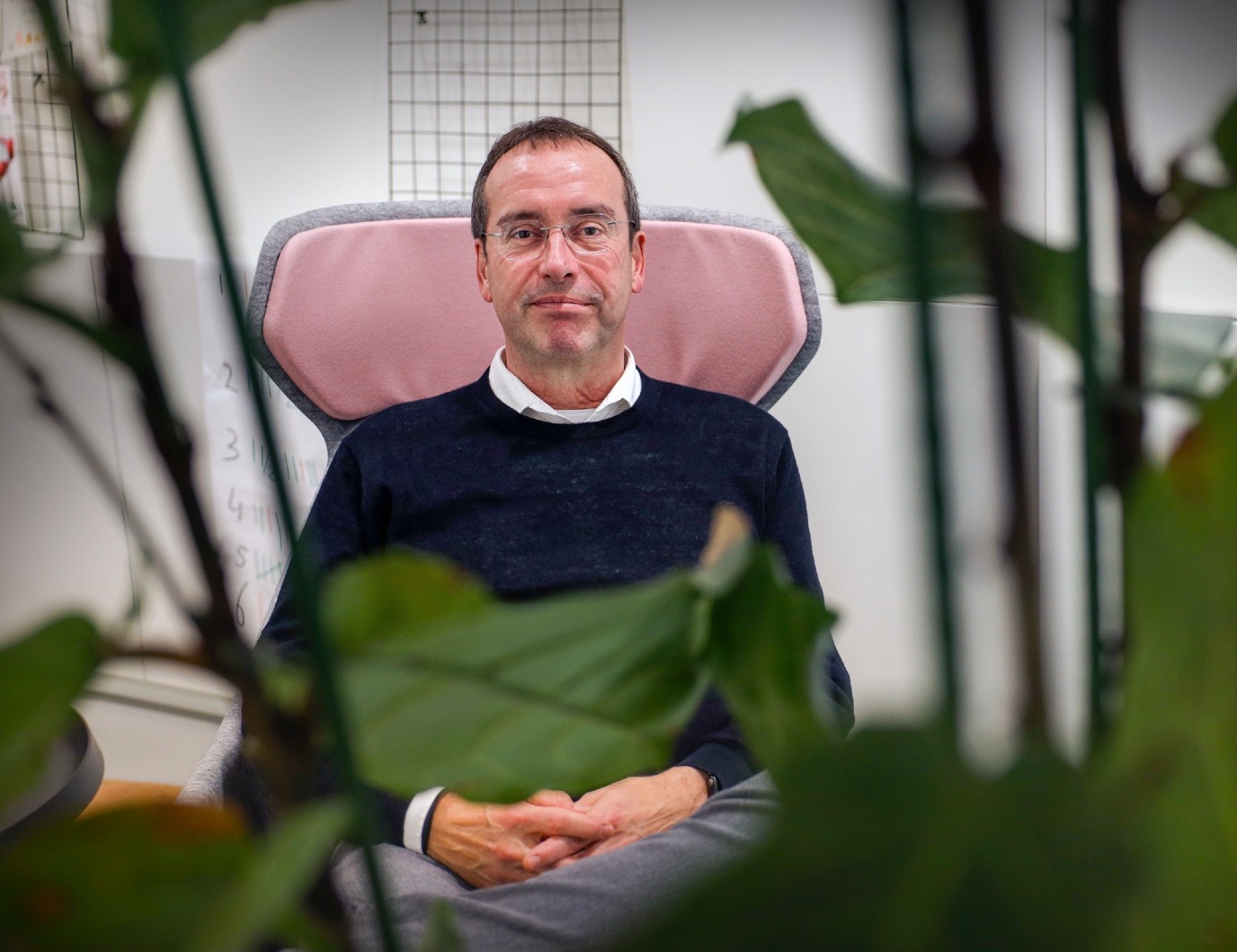Millennials inherit billions — but actually receive the money too late

‘The size of inheritances doubled in fifteen years,’ ‘Millennials soon to be the richest generation ever,’ ‘Increasing disputes over inheritances’: the growing size of inheritances is receiving a lot of attention in the media. Professor Leon Verstappen advocates smart asset planning: ‘Why don't we make sure that children receive their inheritance when they really need it?’
Text: Esther van der Meer, Faculty of Law / Photos: Henk Veenstra
Now that the baby boom generation is slowly reaching advanced old age, an enormous amount of wealth is due to be inherited in the coming years. In 2023, the total wealth of the Dutch population was around €2,600 billion. Approximately € 1,000 billion was in the hands of people in their sixties, excluding pensions.
How do you put all that money to good use?
An enormous amount of money that is being put to new use through donations and inheritances. Usually to family, but also to charities. And that is where the law comes in. Because how do you put all that money to good use? Verstappen: ‘That is still something people think far too little about. It's a certainty that we'll all die, but when our time will come is a surprise for us all. So it's better to make provisions in good time. My advice is: make your will in good time.’
Leon Verstappen is Professor in Private Law, specializing in notarial law, and he has spent a quarter of a century delving into various aspects of relationship property law, inheritance law, corporate law, property law, and legislation relating to notaries. The first two in particular affect everyone. ‘Anyone who moves in with a partner, gets married, or inherits from their parents will have to deal with private law. That is when these topics become relevant,’ he says with a smile.

People have surprisingly little in order
For something that affects so many people, it is surprisingly rarely spoken about, and people have surprisingly little in order. Verstappen: ‘People think it can wait until later. Take cohabitation, for example. A growing number of couples live together without being married. If you don't have a cohabitation agreement or a will, you could be in for a nasty surprise when one of you dies. As the surviving partner, you'll be left empty-handed.’
Making adequate provisions, simplifying complex structures, solving problems — in short: improving the law — is the common thread running through Verstappen's career. And he does this across the entire spectrum of private law. For example, he has modernized the legislation governing what happens to your assets when you get married. It is now stipulated that in the event of a divorce, only the capital that spouses have accumulated together is divided, but not inheritances, gifts, and pre-marital assets.
But he is also involved in improving living wills, alimony, the legitimate portion (the amount to which a child is entitled if disinherited by a parent), and how the law can respond to new challenges.
For example, in the field of sustainability or digitization. How can you purchase solar panels and operate them jointly with people who live in the neighbourhood? How should the law deal with digital assets in estates such as cryptocurrencies (Bitcoins) or non-fungible tokens that have value? ‘I like to take a broad view. But I think the key question is always: how can I improve the law?
Why are there 400 models for mortgage deeds?
For example, a proposal to simplify mortgage deeds has just been finalized. ‘In the Netherlands, there are 144 mortgage lenders who work with approximately 400 models for deeds to establish mortgage rights. These are often formulated in a very complicated way. Yet these deeds all aim to achieve the same thing. So why not create one simple version?’ That model is now in place, understandable to everyone, and legally watertight. ‘I hope it will actually be used, but it will be hard to get it accepted. Banks are not the easiest parties to convince.’

What he is perhaps most proud of is the Land Portal, an international publicly accessible source of information and datasets on land governance, land use, and management of land and resources worldwide. ‘That is a project that got a bit out of hand, for which I travelled all over the world to get things off the ground. Suddenly, I had to go to Washington and Rome several times a year, and I found myself in Quito, Dakar, Cape Town, Beijing, and Jakarta.’
The result is a foundation with about ten staff members that works with more than 2,800 organizations worldwide to make information and data accessible to anyone who wants to use it. ‘It's about all kinds of land-related issues such as climate change, corruption, food security, gender, and large-scale investments in land.’
Working with the notary
The next topic he would like to tackle is the question of how notaries can better inform and advise their clients. The immediate trigger for this was two broadcasts by the AVRO/TROS investigative programme Radar on land speculation in the Netherlands, in which he was asked to appear as an expert.
Land dealers earn fortunes by buying up agricultural land, dividing it into small plots, and selling it to private individuals at high prices under the false pretext that housing construction is planned at these locations. ‘Pure deception, perhaps even fraud. What surprised me so much was that these people, who were by no means stupid, had no idea what they were signing. If they had read the terms and conditions carefully, they would have seen the risks they were running, but they were blinded by the promise of mountains of gold.’
This is where the notary comes in. ‘The notary is an interpreter: their job is to clearly explain to people what they are signing and what risks they are running.’ This gave him the idea to take a closer look at the work of the notary. ‘How can the notary better inform people? How can they explain things more clearly? That is something I would like to investigate. Not on my own, but together with experts from other disciplines such as language and communication scientists, and the professional group.’ The research proposal is ready; now all that is needed is funding.

More inheritance tax
Let's go back to those billions in inheritances that will become available in the coming years. Is there room for improvement here too? ‘Absolutely! First of all, we can afford to pay a little more tax on those inheritances. Some people see inheritance tax as legalized theft. People always say: tax has already been paid on it. But that is nonsense, of course. The heirs have done nothing to earn this money, they didn't pay tax on it before, and the tax they have to pay is quite modest at a maximum of 20%. That is still lower than the income tax rates we pay on the wages we have earned.’
But he does not think that is the most interesting thing. ‘When do people receive inheritances? With current life expectancy, that is around the age of 50 or 60. But when do you need that money? When you're young. So why not make sure that children are helped with family allowances when they really need it? Paying for a good education for your children or helping them buy their first home is much more important than them receiving a sum of money when they've already made their nest egg. Give with a warm hand.’
More information
More news
-
08 December 2025
Colourful Characters: Bert Röling
-
13 October 2025
Opinion | Control: an unclear magic word, with a price tag
